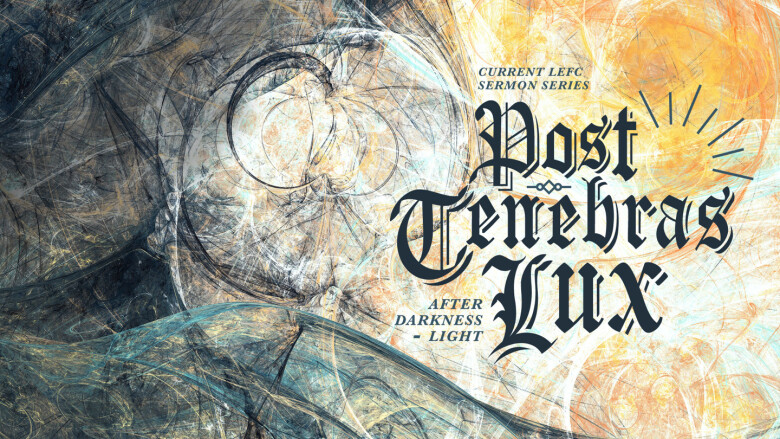Is Purgatory Biblical?
What is purgatory?
- Answer: nothing. Because it’s not real.
- Belief in Purgatory was formalized in the 13th The Catechism of the Catholic Church defines purgatory as a "purification, so as to achieve the holiness necessary to enter the joy of heaven," which is experienced by those "who die in God’s grace and friendship, but still imperfectly purified" (CCC 1030). It notes that "this final purification of the elect . . . is entirely different from the punishment of the damned" (CCC 1031).
- Dante’s poem The Divine Comedy (1472) thrust this belief into the forefront of the public consciousness. Printing press had only been around for 32 years by this point.
Is Purgatory Biblical?
- The key issue stacked on top of these elements is the doctrine of Justification
- It starts with the idea that Jesus can’t possibly be enough for our salvation, that we somehow have to earn it
- This idea goes back to the earliest days of Christianity
- Matthew 19:16-26
This passage is it’s own entire sermon, but what I want to highlight here is verse 19, what good thing must I do?Also want to highlight the end of this passage, that it is impossible for a man by his own efforts to get into heaven
- Matthew 19:16-26
-
- Galatians 3:1-14
Highlight verse three – begin by the spirit, finish by the flesh
- Galatians 3:1-14
- In many ways this is an outgrowth of the sin of pride – we must be able to do something on our own to make this happen, we hate to rely on others.
So here’s how all elements of this pyramid interact:
- (1) By not being clear and careful on what exactly is scripture and what is not, we have non-inspired writings being treated as the authoritative word of God
- Those words create doubt that Jesus alone has provided the atonement for our sins, and all alternative that appeals to human pride
- (2) Putting church tradition on equal authority with scripture means that after the council of Lyon in 1245 laid out the doctrine and made it part of church dogmatics, this became the official belief of the church and
- (3) Because the church was considered the final authority on interpreting scripture (and scripture was largely unavailable) there could be no debate
- (4) Thus the doctrine of justification is warped by the poor foundation underneath it, and becomes one in which, essentially, Jesus buys your admission ticket into heaven, but you still have to work your way there on your own.
Three passages that directly contradict this doctrine
- Luke 16:19-31 – Rich man and Lazarus
- Luke 23:39-43 – Thief on the cross
- “Nor did he enter heaven to offer himself again and again, the way the high priest enters the Most Holy Place every year with blood that is not his own. Otherwise Christ would have had to suffer many times since the creation of the world. But he has appeared once for all at the culmination of the ages to do away with sin by the sacrifice of himself. Just as people are destined to die once, and after that to face judgment, so Christ was sacrificed once to take away the sins of many; and he will appear a second time, not to bear sin, but to bring salvation to those who are waiting for him.” Hebrews 9:25-28
Why don’t we believe in Purgatory today?
- (1) We recognize the Hebrew Bible as the OT, just as Christ and the apostles did
- (2) We believe that scripture is our final authority, not the church. Church tradition and teachings must be supported by scripture and do not have independent authority.
This is one of the key elements of the reformation. We’ll hear more about this next week. - (3) We believe that every believer, through the Holy Spirit, has the ability to interpret scripture. This is why we encourage everyone to not only have a bible, but to spend time reading it. The faithful study of scriptures by the people of God holds the church accountable to teach the word faithfully.
- (4) We believe that we are justified by faith alone in Jesus alone. Works flow outward from our faith but have nothing to do with our justification.
- (5) Because Jesus sacrificial atonement for our sins is complete, our justification is complete, and there is no need for any additional cleansing.
- “And now, dear children, continue in him, so that when he appears we may be confident and unashamed before him at this coming.” – 1 John 2:28
- We can enter into the presence of God because of the blood of Christ
- “But if we walk in the light, as he is in the light, we have fellowship with one another, and the blood of Jesus, his Son, purifies us from all sin.” – 1 John 1:7
- The blood of Jesus purifies us from all sin. Period. Dot. End of story. Let’s pray.
Series Information

500 years ago the church experienced what was to be the most significant change in its history. Luther posted his 95 Theses calling God’s people to open His word and discover the light of life, thus ending the dark ages of the church. Today, those statements shape our identity as Christians. We will discover them afresh and anew. They could change your life!
